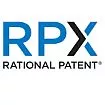Inventor-controlled B.E. Technology, L.L.C. has filed two new suits in the litigation campaign that it began back in 2012 with a slew of Western District of Tennessee cases against Alphabet (Google), Amazon, Apple, Barnes & Noble (later acquired by Elliott Capital Advisors), Facebook, Groupon, IAC/InterActive (Match.com), Lenovo ( Motorola Mobility), Liberty Media (Pandora), LinkedIn (later acquired by Microsoft), Match Group (People Media), Microsoft, Samsung, Sony, and Spark Networks. The new defendants are familiar: Google (1:20-cv-00622) and Twitter (1:20-cv-00621), each sued in the District of Delaware. At issue are features within the defendants' respective advertisement products for generating advertisements based on users' Internet activity. B.E. Technology's three patents, belonging to the same family with two members previously asserted, broadly relate to generating targeted advertisements based on keywords displayed on a user's webpage.
In those 2012 cases, B.E. Technology asserted one or both of two related patents (6,628,314; 6,771,290) against every defendant, adding another related patent (6,141,010) against only Amazon. All three claims of the '290 patent were cancelled through a series of final written decisions in inter partes reviews (IPRs), which results were affirmed by the Federal Circuit (15-1883, 15-1884). Claims 11-22 of the '314 patent fared no better. The appeals court also affirmed their cancellation in separate IPRs (a total of 14 of them), also affirming the PTAB's denial of B.E. Technology's contingent motion to amend (which the PTAB's director had intervened to defend) (15-1827).
The '010 patent not subjected to IPR, the PTAB's cancellation of the other patents' claims ended the suit against every defendant but Amazon (each of which had been stayed to await the results of the PTAB's various proceedings). In September 2018, David Hoyle, president and CEO of "Big Easy Technologies" and named inventor on the asserted family of patents, asked District Judge Jon Phipps McCalla (by letter) to dismiss the Amazon case without prejudice due to B.E. Technology's failure to secure representation after its counsel withdrew and in light of presumed financial hardship. The court refused, given the gap in time between the request and earlier counsel's withdrawal, dismissing the case with prejudice in October 2018.
The suit against Facebook persisted into 2019, through yet another appeal to the Federal Circuit, this one of the Western District of Tennessee's decision to award Facebook roughly $4K in costs as the prevailing party in the case. The court agreed to dismiss the lawsuit as moot after the cancellation of the '314 patent's claims was affirmed on appeal, later declaring Facebook the prevailing party and awarding costs. The Federal Circuit affirmed this disposition of the suit in October 2019 (18-2356).
Now, B.E. Technology has asserted the three most recently issued members of the same eight-patent family (8,549,410; 8,549,411; 8,769,440) against Google and Twitter. The plaintiff, formed in Delaware in August 1997, pleads that its principal place of business is in Memphis, Tennessee. (B.E. Technology defeated a transfer out of Tennessee to Northern California in the earlier litigation.) The complaint recounts an alleged history in which Hoyle, "a computer programmer in New Orleans", formed B.E. Technology to "capitalize on his ideas" for facilitating the access of information from various devices in order to allow people to work from home, "further develop[ing] personalized products and services that delivered digital networking technologies for users and enabled users to connect to a ubiquitous network".
Hoyle "wanted to provide his products free of charge through online real-time reactionary advertising", seeking to "create real-time targeted advertising based on, for example, keywords contained on web pages visited by a user". The asserted family of patents purportedly grew out of that work, the family having an earliest estimated priority date in July 1998. Martin David Hoyle is the patents' sole named inventor. B.E. Technology appears to plead defensively against an attack on the patentability of the underlying subject matter: "Real-time reactionary advertising is based on particular information gathered in real-time regarding what a user is doing; in contrast to static information about a user such as demographic information or personal information. The Patents-in-Suit explain in technical detail how information about what a user is doing at a particular time is gathered, which was a technical hurdle that had to be overcome to implement the claimed method". 5/7, District of Delaware.
The content of this article is intended to provide a general guide to the subject matter. Specialist advice should be sought about your specific circumstances.


